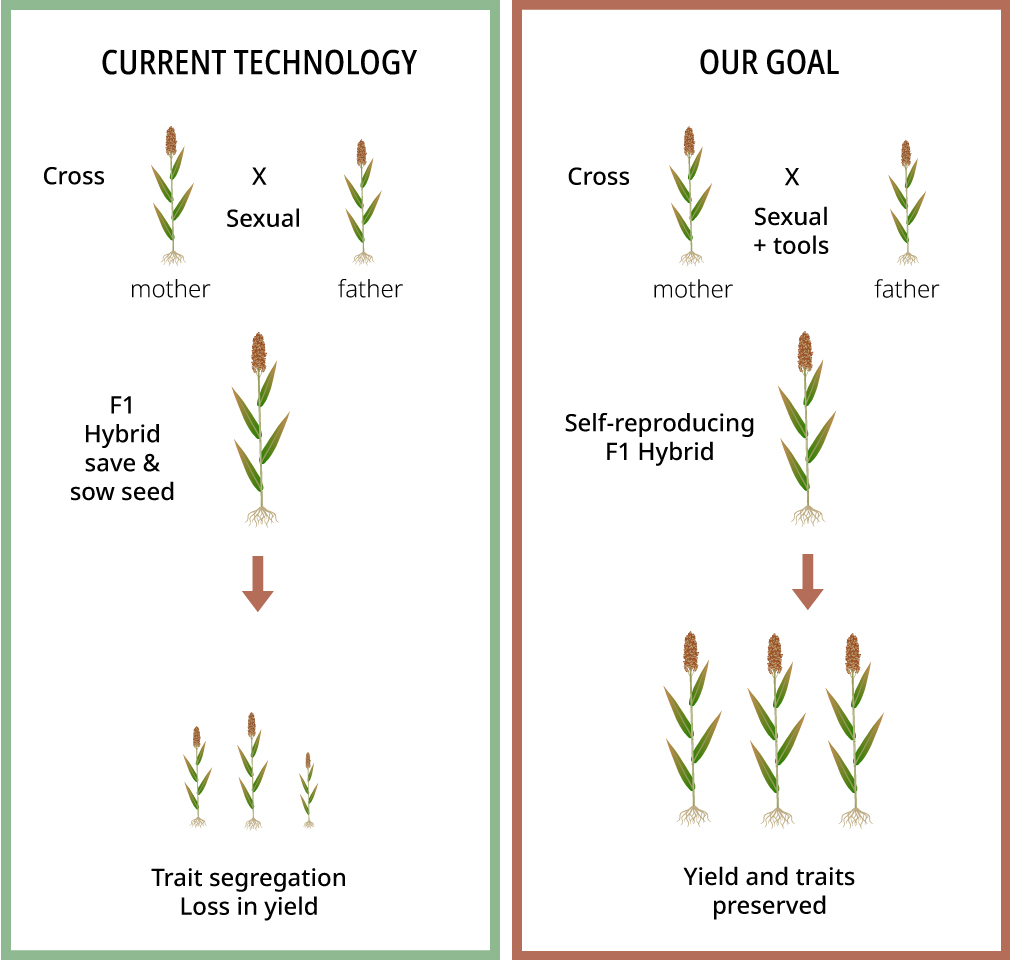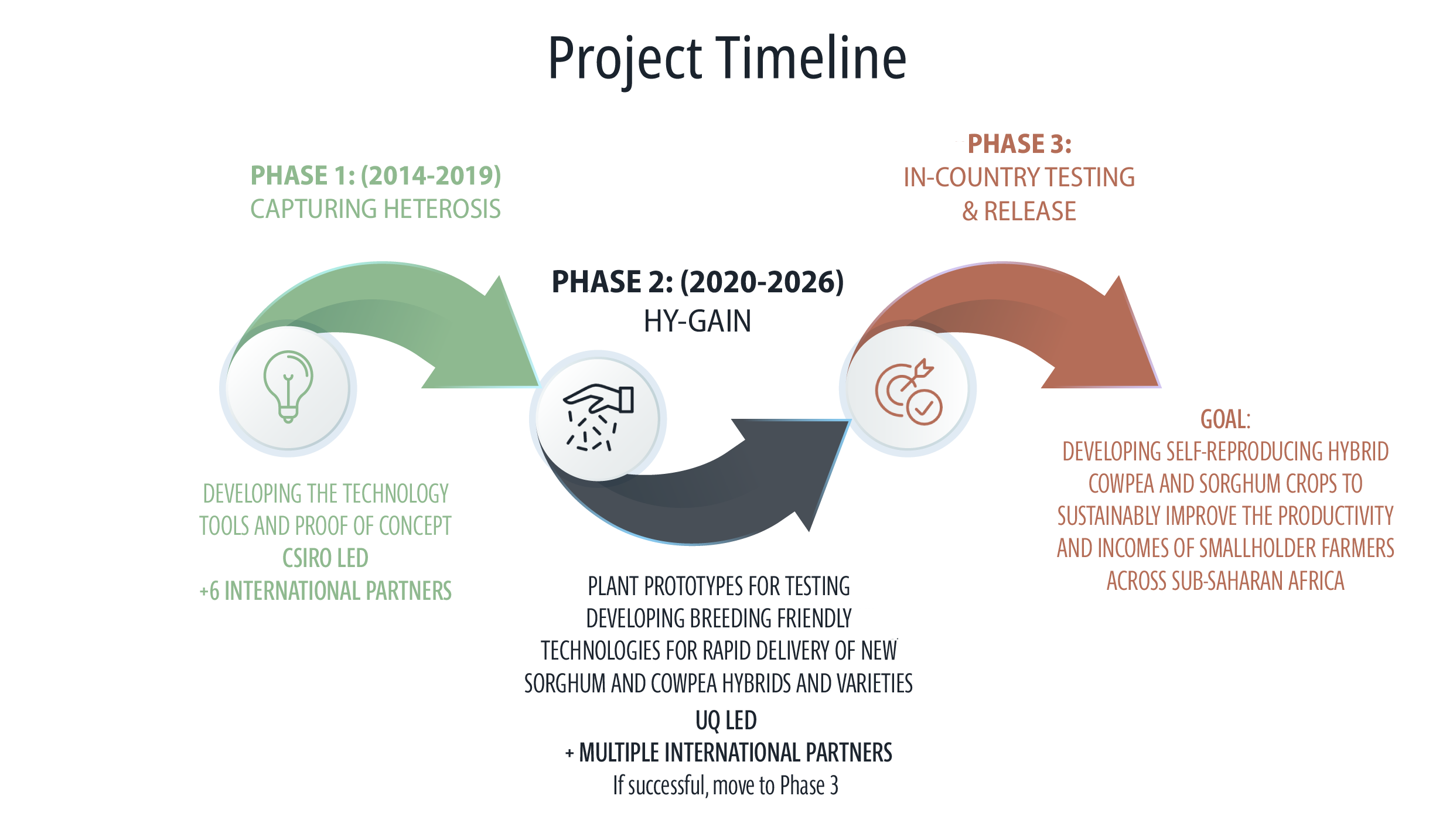The project
The challenge
Over 200 million people in sub-Saharan Africa are impoverished and undernourished. Most are smallholder farmers living in rural environments and relying on agriculture as their major source of food and income.
Yields of the major staple crops which provide food, fodder and fuel are low due to poor quality seed, poor soils, drought and high disease pressure. Reliable production of greater quantities of staple crops would ensure greater surety of food supply, and sale of what cannot be consumed would improve smallholder income.
Focusing on sorghum and cowpea
Sorghum and cowpea originated in Africa and are important staple food crops, but suffer from low yields. Increased yields of cowpea and sorghum could change these crops from subsistence crops to increasingly important sources of income for smallholder farmers.
Conventional genetic improvement to increase yield is slow. Sorghum and cowpea hybrids could provide significant increases in crop yields (~30%) via heterosis, i.e. an increase in yield, uniformity, and vigour that is observed in offspring resulting from a cross between distinct inbred parental lines.

Hybrid crops offer partial solution
Heterosis or hybrid vigour causes the progeny derived from a cross or mating of plants and animals to out perform their parents in such characteristics as size, growth rate, fertility, and yield.
While the first generation offspring out perform both parents, this vigour is not passed on to the next generation. This relates to features of the sexual reproductive process which causes trait segregation and the loss of the vigourous traits. Hybrid seed must be made anew and purchased each year.
The technically difficult and labour-intensive nature of hybrid seed production requires specialist enterprises, and hybrid seeds command a higher price. The requirement to purchase hybrid seed each growing season is a disincentive for cash-poor smallholder farmers.
In Africa, the gains conferred by heterosis remain limited to a single major crop, maize. While Guinea-race sorghum hybrids are being developed, cowpea hybrids are absent.
Self-reproducing hybrid crops
If hybrid cowpea and sorghum crops could make their seed asexually instead of the way current hybrids do, via sexual reproduction, heterosis should be preserved. This would enable smallholder farmers to self-harvest high-quality seed, providing a more secure food supply and potentially increasing income through the sale of surplus harvest and seed.


Hy-Gain’s goal is to support the future development and deployment of highly trusted, elite self-reproducing cowpea and sorghum lines for seed production and use by smallholders. The Hy-Gain team is committed to an integrated program of quality research and stewardship management for future delivery of high quality and high yielding self-reproducing hybrids in subsequent project phases.
The University of Queensland (UQ) team, based at St Lucia, developing cowpea and sorghum self-reproducing, plant prototypes and testing sorghum plants in confined field trials in Queensland for component efficacy has successfully completed an audit under the Excellence Through Stewardship Global Audit process. The Hy-Gain UQ St Lucia Team and Corteva are both Members in Good Standing with the Excellence Through Stewardship program.

Hy-Gain for smallholders
High-yielding, sorghum and cowpea seed
